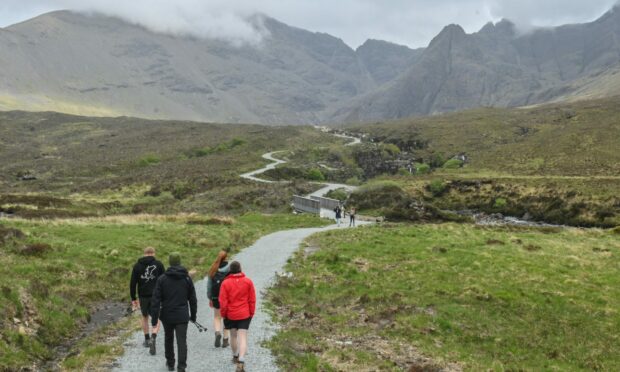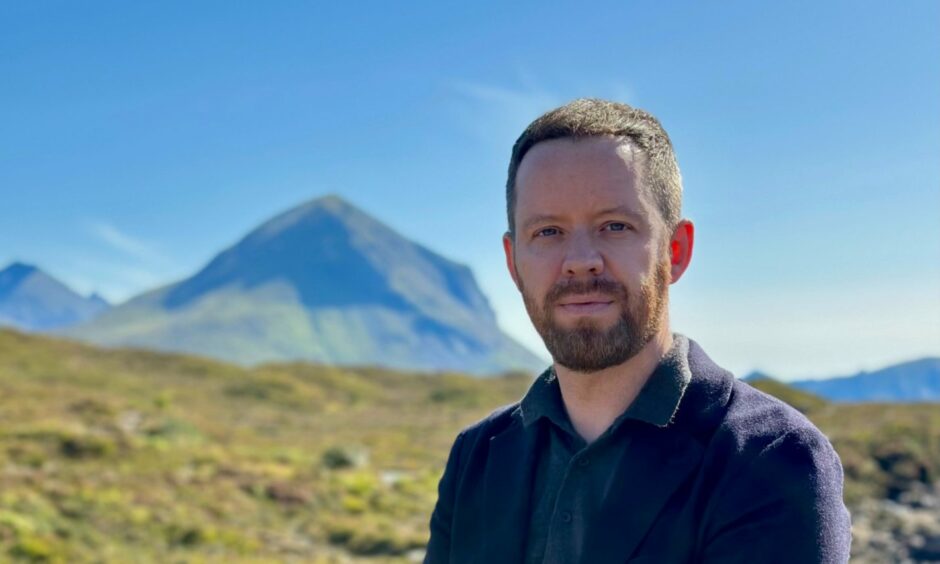Businesses on Skye have made an emphatic plea to have money raised from a future visitor levy collected and spent on the island.
A new local survey shows general opposition to proposals for the levy, or tourist tax.
But, if the charge is implemented, Skye businesses say the income should be invested locally and not go into a wider Highland Council pot.
The Scottish Government has published a Bill to enable councils to invest more in local tourism facilities and services through a levy on overnight stays.
If passed, the Visitor Levy (Scotland) Bill will give councils the power to apply the levy based on a percentage of the accommodation cost.
Survey shows majority against the levy
The destination management organisation SkyeConnect received 170 responses to a recent survey on the issue.
It showed just over 60% are against a levy being imposed on all overnight accommodation. 82% oppose it being collected and distributed by Highland Council.
Almost 90% believe the revenue raised on Skye should be spent on Skye. 82% favour local administration by the destination management organisation (DMO).
The survey also showed 85% of businesses believe the levy should also be applied to campervans, caravans and motorhomes.
Three quarters of respondents were from the self-catering and B&B sector, with 70% saying they do not have the means to collect and administer the levy.
In addition, 64% say they would take fewer bookings if the levy pushed their business over the VAT registration threshold.
The SkyeConnect board will submit a response to the Scottish Government ahead of the consultation deadline on September 15.
The Scottish Parliament has also created an online ‘Citizen Space’ which allows for more informal comments.
Skye faces unique and increased pressures
SkyeConnect chairman Gary Curley said: “It’s clear that there is general opposition to the current Visitor Levy Bill proposals.
“However, if it is to be implemented, the business community on Skye insists that revenue raised locally should be spent locally and administered by the DMO.
“As Scotland’s second most popular destination, Skye faces unique and increased pressures on our environment, infrastructure, and communities.
“The concern is that substantial revenue raised locally will be diverted into a central Highland Council pot and spent across the region rather than directly benefitting and protecting Skye.”
Highland councillors voted in 2019 to support a Highland visitor levy to manage the effect more than six million visitors annually have.
This followed a survey of 6,600 residents, businesses and visitors to the region on the issue.
According to an assessment carried out by the council in 2019, a Highland tourist tax would raise £5 million-£10 million a year.
It has been opposed by many hoteliers, including Tony Story, CEO at the Kingsmills Hotel Group. He said the plan is “awful”.
More consultation
The council’s economy and infrastructure chairman Ken Gowans said the earliest a levy could be applied would be in 2026.
“That’s to allow time for consultation with organisations such as SkyeConnect and others in a similar position.
“Whatever comes forward to council, a large chunk of that will be informed by the tourism sector.
“It’s a bit premature to talk about who is getting the money. There is a whole raft of things we need to look at. I look forward to SkyeConnect and other partners being part of that conversation.”
For more exclusive and breaking Highland and Islands news from the P&J, join our dedicated Facebook page.



Conversation